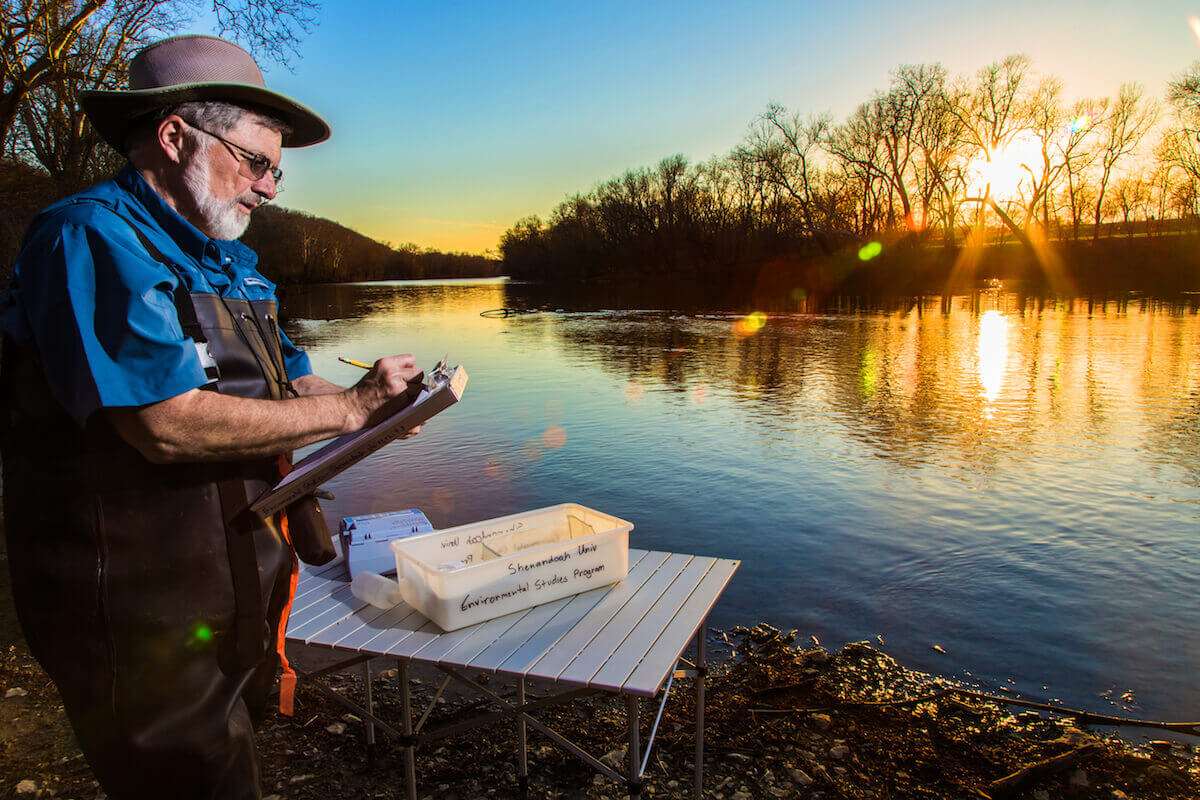Woodward S. Bousquet, Ph.D., professor of environmental studies and biology in Shenandoah University’s College of Arts & Sciences, was installed as president of the Virginia Academy of Science (VAS) at the academy’s annual meeting in Farmville, Virginia, in May. He will serve in this office until May 2019.
Bousquet is the first Shenandoah University faculty member to serve as academy president in the organization’s 96-year history. Bousquet joined Shenandoah’s faculty in 1993, and has been active in the VAS since 1994.
“I’m proud of the Virginia Academy of Science’s nurturing of successive generations of scientists, and for its record of advocacy for science education, scientific research and informed, science-based decision-making,” said Dr. Bousquet. “It’s an honor – one that comes with significant responsibilities – to be asked by my Virginia science colleagues to serve as an academy officer.”
In his years of VAS service, Bousquet has mentored more than 20 Shenandoah biology and environmental studies undergraduates in presenting their research findings at the VAS’s annual meeting, with four of them receiving Best Student Presentation awards. He and Shenandoah University undergraduates focus their research and environmental education projects on studying and protecting the Shenandoah Valley region’s wetlands, waterways and natural areas.
Bousquet’s previous responsibilities within the Virginia Academy of Science include service as program chair of the 2017 VAS Fall Undergraduate Research Conference, and as chair of the Academy’s Botany Section.
The VAS, founded in 1923, is the nation’s fifth-largest city, regional or state science academy. It assisted in establishing the Virginia State Parks System and the Science Museum of Virginia, and supported the development of the Flora of Virginia, a 2012 comprehensive guide to the state’s plants. Its leaders testified at the 1925 Scopes Trial, and the organization has taken a strong stand in favor of teaching modern evolutionary theory in schools. It was an early advocate for including women and African-American scientists and science educators in professional meetings.




